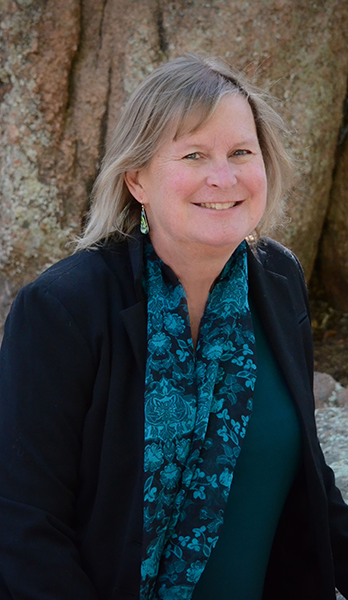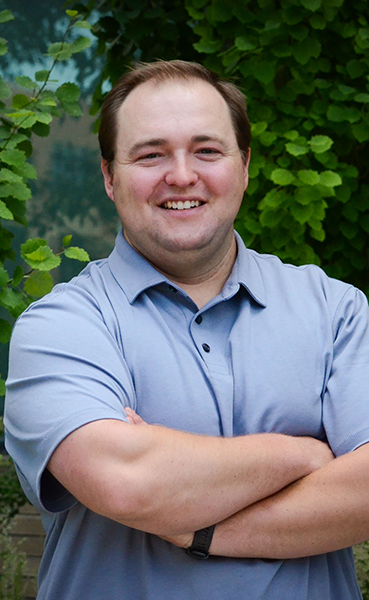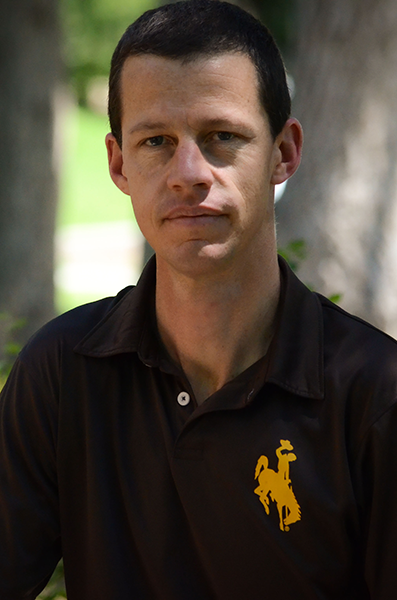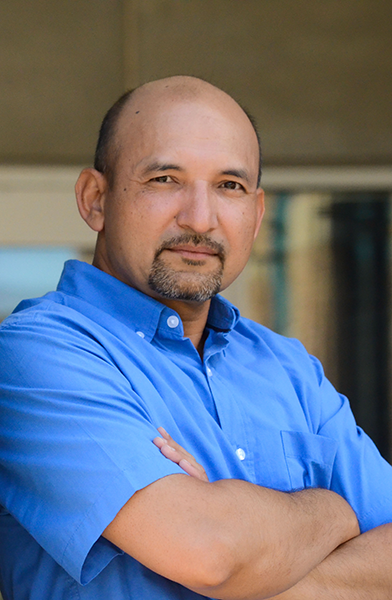School of Energy Resources Welcomes Four New Researchers to the Center for Carbon Capture and Conversion
Published August 07, 2023
By Christine Reed
The Center for Carbon Capture and Conversion (CCCC) in the School of Energy Resources (SER) is the latest Center of Excellence to exponentially expand its research team with the addition of four research scientists.
SER welcomed Marie Dudgeon, Louis Christiaan ‘LC’ Muller, Resham Thapa and Elijah ‘Eli’ Ellis in July to keep pace with expanding scope and project advancement in the CCCC. All involved in the flagship carbon engineering initiative, the quartet will work toward advancing the Center’s mission to find new, high volume uses for Wyoming coal.
A chemical engineer from Parker, Colo., Dudgeon graduated from the Colorado School of Mines in 1986 and later earned her Master’s degree from the University of Southern Australia. She traveled all over the world as a leader in project management, facilities management, and start-up engineering consulting, including in Brisbane, Australia and the United Kingdom.

With skills honed through her international experience, Dudgeon’s consulting services were procured by the U.S. Army to organize a facility start-up for the Chemical Demilitarization Program (CDP), a long-term project that was recently completed in July 2023.
Since 2017, Dudgeon has consulted with the University of Wyoming in multiple capacities. In November of 2022, she has worked as a full-time consultant with the CCCC to focus on advancing the solvent extraction coal processing technology as well as assist with the integrated flash pyrolysis technology.
In her new role as an associate research scientist, she will be leading the scale-up of the solvent extraction project – an essential piece of advancing the downstream coal products under development in the Center.
“This is my dream job,” says Dudgeon. “It is so innovative, but everyone is personable and it’s such a positive working atmosphere. The people that I am working with are just brilliant and cutting-edge technology is just a really exciting space in which to be working.”
Similarly working on the coal refinery technology, Cheyenne-native Eli Ellis will be focused on the flash pyrolysis project. Earning both his undergraduate and Master’s degrees from UW, Ellis recently graduated in Mechanical Engineering after having defended his Master’s thesis on the processing technology under the tutelage of Associate Professor of Mechanical Engineering Erica Belmont.
Ellis is one of many researchers that has worked on the project over the years as it has advanced. He has been responsible for taking results from previous students and faculty members and learning from experiments that were repeatable with the ultimate goal of scaling up the technology. In his new role, he will be providing critical input to support the CCCC and the Principal Investigators (PIs).

In addition to the applied research of turning raw coal into various gases, liquids and char materials to supply other research groups on campus, he is involved in multiple ongoing publication opportunities to document the research.
“I am so pleased to be working at SER and to continue my research,” says Ellis. “I will continue working on this project as it scales up and see it through. Being from Wyoming, I think it is especially significant that I get to work toward finding an alternative use for coal and to give back to the state.”
On the downstream side of the carbon engineering initiative in the CCCC, LC Muller and Resham Thapa are working to develop novel, coal-derived products by utilizing the materials yielded from the coal refinery process technology.
Hailing from Warden, South Africa, Muller recently completed a post-doctoral research position in the Chemical Engineering Department where he worked under the direction of the research team at Western Research Institute (WRI) to develop coal-based asphalt and roofing materials.

Prior to his arrival at Wyoming, Muller earned his Bachelor’s degree in Chemical Engineering from the University of Pretoria before finishing a Ph.D. in the School of Chemical and Minerals Engineering at North West University in South Africa. He has extensive experience as process and project engineer in the oil and gas and HVAC industries. Additionally, he has published multiple articles on topics including biofuels, polymers, and renewable materials.
In his new role, he will continue to work in collaboration with WRI to develop and test the coal-based asphalt materials.
“Not a lot will change in my day to day as I will continue working towards moving the project from the lab to pilot scale,” says Muller. “We will be working on getting the material out in larger volumes for testing and evaluation by clients, and determine the next phases of the project based on those results.”
“I am very excited to be here – I enjoy living in Laramie and it is an interesting project” he adds. “I have never worked on asphalt before, but it is exciting to see how it has evolved from research to something that can actually become a commercialized product.”
Thapa, a recent from Ph.D. graduate in the UW College of Agriculture and Natural Resources, led a separate project utilizing pyrolyzed coal char as a soil amendment for his dissertation research.

Originally from Pyuthan, Nepal, Thapa came Wyoming for his Master’s degree in Agriculture and Applied Economics and has his since proved himself an indispensable resource with a talent for interfacing between academia and industry.
Over the duration of his doctoral program, Thapa conducted numerous experiments in the lab and at the UW greenhouses to document the properties of the coal char as a soil amendment and its effects on soil health and crop yields. He then worked with important partners at the UW Agricultural Extension Centers in Powell and Lingle to conduct field experiments on full crops using the coal char in order to collect comparative result against the current industry standard products. He will continue to analyze those results while collecting more data from future studies.
“I am really excited to continue my research work on coal-derived soil amendment products at SER,” says Thapa. “I believe that my research work would contribute to finding a new productive use of Powder River Basin coal that will positively impact Wyoming’s economy and employment. It is very exciting for me to apply my knowledge, skills, and experience to the larger society of agriculture and industry.”
With expertise and proven leadership on the soil amendment product, Thapa will also be overseeing a collaborative study with Peabody Energy Inc. at their North Antelope Rochelle Mine (NARM) utilizing coal char in reclamation and restoration of mined land.
“Alternative use of coal as a soil amendment can have numerous benefits in agroecosystems,” he says. “I am thrilled to be part of the SER team where innovative research approaches are welcomed and supported.”
According to CCCC Director Trina Igelsrud Pfeiffer, each of the newest research scientist bring unique skillsets and institutional knowledge to the CCCC, strengthening the carbon engineering initiative and serving as important liaisons to the faculty PI’s in the projects in their home departments.
“Marie, Resham, LC and Eli are incredibly hard-working, talented, and brilliant engineers,” says Igelsrud Pfeiffer. “We are so grateful that they share our enthusiasm for finding a new place for coal in Wyoming’s future, and the continuity that they bring to the projects is unmatched.”
